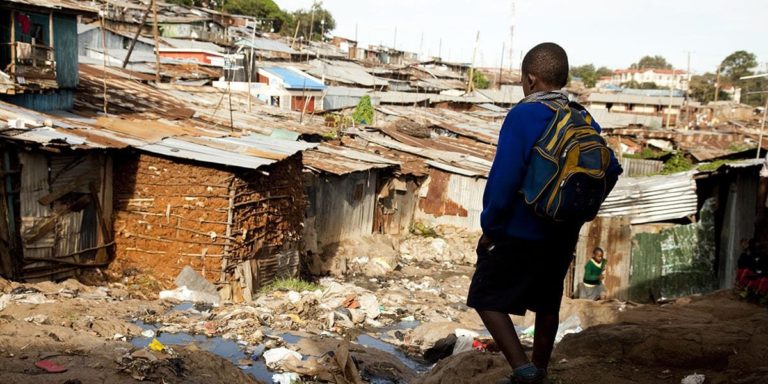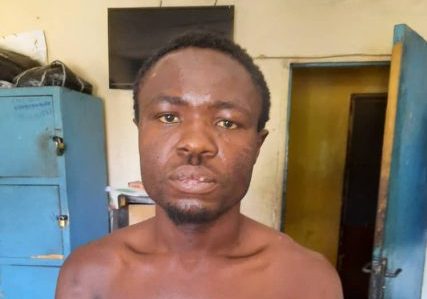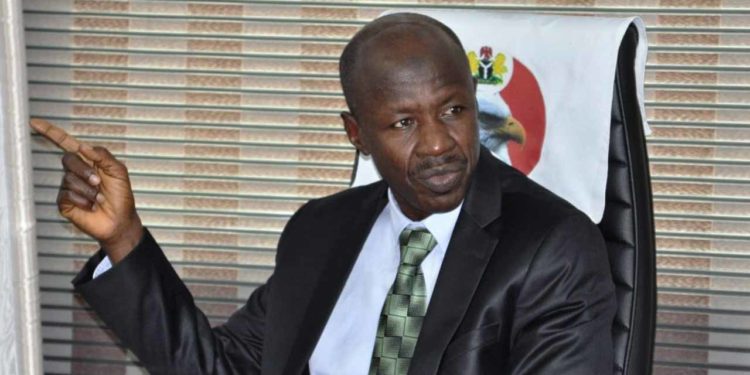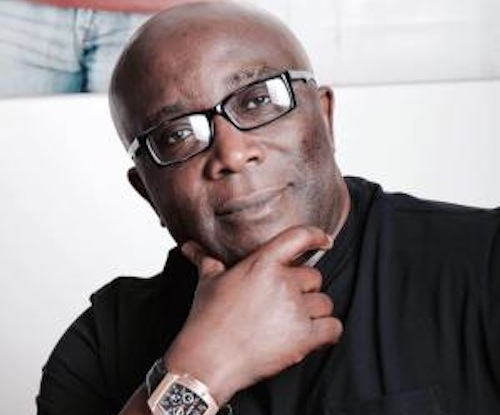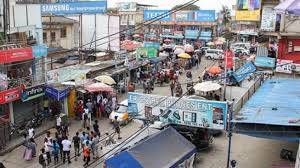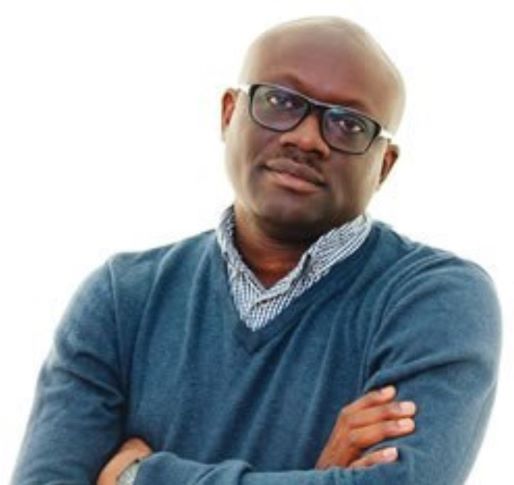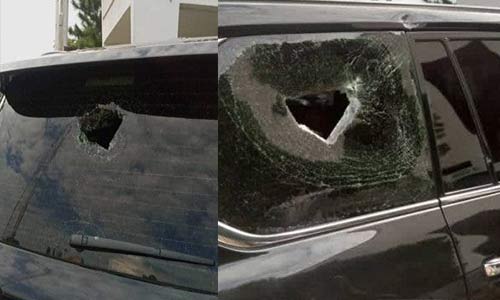In the last one week or so of the rise of the #EndSARS protest across the country, a damp gleam of hope for Nigerialit me up. I dare say same for many of our compatriots. It is just like the gleaming multicolor of an emerging rainbow. All our previous forecasts of hopelessness for the land started to collapse gradually. Picture of a Nigeria bereft of heroes or heroic deeds started to give way.
As the crowd in Abuja, Lagos, Ibadan, Port-Harcourt and other cities multiplied, with unimaginable resilience of trudging Nigerian youths putting their lives on the line in the face of merciless repressive machineries of the Nigerian state, in a moment, I was in Kenya. You would think reincarnation had flung the revolutionary leader and guerilla hero, Dedan Kimathi who led the armed military struggle against British colonial regime in Kenya called the Mau Mau war, back to Nigeria. Or that his revolutionary collaborators – Musa Mwariama, Waruhiu Itote, and Muthoni Kirima had similarly reincarnated on the streets of Nigeria. Like these Nigerian youths, Kimathi was reputed for his dexterous, enormous organizing capacity and unimaginable skills at manufacturing guns. They constituted the vortex of Kenya’s struggle against British colonial injustice.
Like many of the #EndSARS advocates, Kimathi was a youth. Unlike Kimathi’s Mau Mau, however,the Nigerian protest has no identifiable leaders but is united by a common grief, grouse and scalding hopelessness. More importantly, the Nigerian struggle is devoid of the maniacs associated with the Mau Mau uprising of Kimathi. These are young men and women who have demonstrated to the rest of the world that you could be civil, humane and methodical in dissent.
Born in October, 1920, Kimathi began the struggle at age 33 in 1953. In the Kenya of his time, the most resonating angst was the people’s beef with British settlers’ forceful stripping of Kikuyu lands from them. Gradually, they formed themselves into the Land and Freedom Army (KLFA), which then morphed into the Mau Mau group, a militant Kikuyu, Embu and Meru liberation struggle which became a major threat to British colonial government. They compelled fellow Kikuyu to swear to oath of solidarity, in horrific initiation ceremonies of drinking blood of fellow human beings, eating their brains, semen and flesh of exhumed babies.
Kimathi was accused of horrendous methodology of fighting the struggle. Aside ordering the hacking to death of hundreds who defied the struggle, Kimathi carried a double-barreled shotgun and inflicted the most brutal attacks on members of the Kikuyu tribe, largest ethnic group in Kenya perceived to be loyal to the oppressing colonial government. Within the time of the struggle, Kimathi was reputed to have killed thirty-two settlers and around 100 British soldiers. He was eventually shot in the leg and captured by Ndirangu Mau, an askari soldier on October 21, 1956, sentenced to death by a British-assembled court of an all-black jury of Kenyans and presided over by Chief Justice O’Connor. He was executed by hanging in the early morning of February 18, 1957 at the Kamiti Maximum Security Prison.
Organizers of this #EndSARS struggle are far different from Kimathi’s crude struggle prototype. Kimathi received epithets like “terrorist, brute and crude,” even posthumously from successive governments of Jomo Kenyatta and Daniel Arap Moi, but a reconstruction of his place in Kenyan history was subsequently done, both in literature of the struggle and by remembrancers. Ngugi wa Thiongo and Micere Githae Mugo, for instance, memorialized him with the play, The Trial of Dedan Kimathi and his 2.1 metre bronze statue labeled Freedom Fighter Dedan Kimathi, sitting on a graphite plinth statue, adorns Central Nairobi today. Kimathi was also recognized by the duo of Nelson Mandela and the government of Mwai Kibaki, about 50 years after his execution. Mandela flew into Kenya to pay visit to his unmarked grave, barely five months after Madiba left his 27 year- incarceration.
Though Kimathi’s Mau Mau and #EndSARS struggles differ in thematic occupations and modus operandi – one was brutal and the other humane – their ultimate goals were targeted at rescuing their peoples. Replace the brutal British colonial policies of forceful acquisition of Kenyan Kikuyu lands with the duo of SARS police brutality and the hopelessness unleashed on the future of Nigeria by successive governments and you will rationalize the need for an uprising against the systems. For Kimathi’s unorthodox method of instilling fear by allegedly ordering the cutting into two of the young son of a Kikuyu chief, drinking his blood, and throwing the two halves of his body at his mother who was eventually killed too, you have the allegation of wild consumption of marijuana by some of the activists. In the latter, however, a 21st-century approach of resilience and mass organization through social media to stamp their insoluble resolve was employed.
Like Kimathi’s colonial Kenya, there is hopelessness for the youth of Nigeria today. Biblical Queen Esther’s crossroads statement – if I perish, I perish – as she made to enter the presence of King Ahasuerus, the all-powerful King of Persia, who ruled from India to Ethiopia, seems to be #EndSARS’ abiding pathway. Spilling their blood as martyrdom doesn’t seem to matter to these youths who gather on Nigerian streets in the last one and half weeks or so. Their typically unNigerian resolve can be likened to the seeming nihilistic words from those biblical starving lepers at the entrance of the City Gate during the famine of Samaria. The lepers, listening to the approach of the Syrian army, had said to themselves, “If we say, we will enter into the city, then the famine is in the city, and we shall die there: and if we sit still here, we die also. Now therefore come, and let us fall unto the host of the Syrians: if they save us alive, we shall live; and if they kill us, we shall but die.”
The disbanded Special Anti-Robbery Squad (SARS) had made life miserable for Nigerian youths. The most dreaded prototype seems to be the Awkuzu, Awka dungeon said to be Nigeria’s own Auschwitz concentration camp. Auschwitz comprised a complex of over 40 concentration and extermination camps which were operated during World War 11 and Holocaust by Nazi Germany in occupied Poland. In Awkuzu, SARS allegedly indiscriminately exterminated and buried suspects. The first step to show government’s sincerity is to open Awkuzu up for confirmation or disproof of claim that it is a killing and burial field.
To SARS, it didn’t matter whether you had no link with scam and advance fee fraud, all you had to don was bushy, dreadlocked hair heaps like that of Bob Marley and be unlucky enough to afford an I-Phone. Many have been killed without any redemption and many more stood the chance of being killed. #EndSARS’ belief is that it would only take SARS and the Nigerian state to kill a few others during the protests, for normalcy and humanity to sprout in the genes of the Nigeria Police force. For this, the protesting youths’ resolve ranks side by side Esther and Samarian lepers’ suicidal plunges.
The next level of protest, I think, should be #EndHopelessness, in which case #EndSARSshould morph into seeking total redemption for the land, just like the Arab Spring uprising. As I wrote in Why the Colour of #RevolutionNow Was Not Arab Spring-red, this protest has the imprimatur of the huge gathering of Egyptian protesters on February 9, 2011 at the Tahir Square in Cairo. Unruly as they looked, like the #EndSARS, it was obvious that this was a crowd determined to change the status quo. They sought end to oppression, economic adversities and collapse of the Arabian spirit in the Arab world. It spread to the Habib Bourguiba Boulevard in Tunis, Tunisia, a mammoth crowd at the Sana’a in Yemen, calling for the resignation of President Ali Abdullahi Saleh and the hundreds of thousands of people at Baniyas.
It will be calamitous if government, by whatever subterfuge, succeeds in abridging this protest. Though apprehensive, this government does not seem to have learnt any lessons from this peaceful revolt. Already, a redundant, pliant and insouciant government which slept while students pined away at home for seven months now, suddenly became hyper-active in seeking an end to the ASUU strike action. The need for a total stand-up to the runners of the Nigerian government is necessary.
An urgent rescue of Nigeria is today placed by providence in the hands of the youth. The fact that there is no sign of hope in every department of the Nigerian life underscores this urgency. After spending aimless years in school, the youth are flung into a Nigeria that is youth-hostile and holds no hope for their future. There are no jobs anywhere and many of their ilk wander through and get drowned in the Mediterranean in search of hope. Why then would they shy away from confronting this hopelessness once and for all and like in Animal Farm, get the drunken and unkind Mr. Jones, our own Tsar Nicholas II of the Russian Revolution, to scamper away?
Already, #EndSARSand a few emerging contradictions of Nigeria’s pseudo-federation are beginning to reveal the incongruities of our system. They also point the way to go. As seismic as the protest has been and the positive international buy-in it is receiving, Chairman of the Northern Governors Forum, (NGF) and Plateau State governor, Simon Lalong, after a meeting with President Muhammadu Buhari in Abuja last Thursday, said that SARS, the execrable police unit, has been useful to the North in the fight against insecurity. “SARS is not made up of bad elements alone as it also includes personnel who are doing their work diligently,” he said.
Before this, the Zamfara State governor, Bello Muhammad Matawalle,, was said to have sold N5billion gold unearthed in his state to the Central Bank of Nigeria (CBN) while Niger Delta, which lays the Nigerian crude golden egg, cannot sell its treasure. Osun State’s Itamogun, where gold is mined, still forwards own proceeds to a nebulous federal government. It will seem that, like the cobra’s fetus, renowned in ancient Yoruba incantations as originator of its death, the seeds of the unitarist federalism Nigeria operates are coming out to be its pall bearer.Advertisement
All these will reveal the need for #EndSARS to transform into #EndHopelessness. Let the youth, who according to Burma boy, are “the monsters you made,” bring back hope to this countryand subsequently resolve the Nigerian question. For me, Marley’s highly nihilistic track, Check out the real situation, is the way to go. It succinctly explains our crossroads. “Well, it seems like, total destruction, the only solution…”he sermonized. Like the Samarian lepers, if we stay put here, hunger and hopelessness in the hands of Nigeria will kill us but if we stand up to the system now, we can only be killed by hunger and hopelessness. Let us take our option.
AKEREDOLU, AKURE PEOPLE AND PRIMORDIAL INSTINCT
By way of beginning, this is to congratulate Governor Oluwarotimi Akeredolu of Ondo State on his phenomenal win of the October 10, 2020 gubernatorial election. While his All Progressives Congress (APC) was victorious in 15 of 18 local governments, People’s Democratic Party (PDP’)s candidate, Eyitayo Jegede, won in the remaining 3 local governments. That political jokester, Agboola Ajayi and his master, former governor of the state, Olusegun Mimiko of the Zenith Labour Party (ZLP) polled a miserable 69,127 votes. What that means is that even if the highly-trumpeted alliance of Jegede and Ajayi had seen the light of the day, it most likely wouldn’t have been able to upstage Akeredolu.
However, Governor Akeredolu jolted poll watchers when he announced his disappointment with the people of Akure, the state capital, who constituted the three local governments – Akure South, Akure North and Ifedore local government – where he lost and which gave Jegede their votes. Jegede hails from Akure. Akeredolu had said in a television interview: “I thought I was going to win the 18 local governments. I’m shocked at what happened in Akure… But I’ll put that behind me. I’ll move forward. I thought I would win in Akure because I worked in those three local governments where people turned against us. But it’s alright with me. We’ll forget it.”Advertisement
In a Nigerian politics where primordial sentiments take overwhelming position over any other consideration, it is shocking that Akeredolu is shocked at the paucity of votes he got from Akure people. The primordial nature of political support is revealed in that, in Owo where he hails from, Akeredolu defeated Jegede with about 30,000 votes while Jegede also led him with about the same amount of votes in Akure.
Akure people were known to fight other people’s battles, even at their own detriment. The kingdom roasted like suya its crème de la crème politicians in the Second Republic – R. A. Agbayewa, Olaiya Fagbamigbe and Babatunde Agunbiade esq, former Majority Leader of the State House of Assembly, and many others. Their crime was that they supported an Ekiti man, Akin Omoboriowo and abandoned an Owo man, Adekunle Ajasin. So, rather than be shocked at the outcome of votes from Akure, Akeredolu should be happy for Akure people because primordiality is manifesting as having its own gains after all.
For the very first time in a very long while, Akure queued behind its own in the said election. For decades, indigenes of Akure city and their kinsmen from the hinterland who constitute the other two local governments, had engaged in ancient bickering. Politicians exploited this dissonance to further set them apart. Akeredolu himself once said that Akure belonged to all. The monarchies in the three local governments strove unsuccessfully to mend this crack. It is worsened by an ancient but objectionable line of a native dialect song renowned with Akure in the city, to wit, “A mo i s’Akure oko o, Akure Oyemekun…” – we are different from Akure villagers; we are true born of Oyemekun.” This divisive song built a wall between the Akure people in the councils.
However, with this election, the three “warring” councils that constitute Akure were able to come together and speak in unison, albeit in support of their son, Jegede. To irredentist Akure people, this is phenomenal and should be consolidated. Methinks its leaders should use the outcome of the election to heal the ancient acrimonies, dump self-serving charlatan political leaders, get a leader acceptable to all Akure people and use their unity to negotiate for the development of Akure kingdom from political authorities.
In Nigeria, a second term has always been the bane of states’ development as re-elected governors literally go to bed and slip into a 4-year inertia. Akeredolu began the first four years well by attracting some industries to the state via synergy with the Chinese which produced the Ondo-Linyi Industrial Hub in Ore and constructing the Ore Interchange bridge. He also made appreciable showings in road infrastructure. He should go down in history as the governor who deviated from the pack by spending every day of the next four years working. He would be a hero. He should also make the Akure people, who characteristically voted their son, to come tender apologies to him in 2024. This will happen if he breaks their expectations in infrastructure and human capacity empowerment.
FORTY FIVE MINUTES WITH BABAJIDE SANWO-OLU
A little over a month back, I was engrafted into a private sector-driven entourage billed to pay the governor of Lagos State, Babajide Sanwo-Olu, a courtesy visit. It was an opportunity to meet him for the first time and subject his grips and grits to intense mental interrogation. For the about forty-five minutes the visit lasted, I held a sieve to the tall, slim, dark man. As the leader of our entourage made his presentation, Sanwo-Olu fluidly made notes as if he was in a classroom.
At the time to respond, he took me by storm. Critical, informed and potentially dissembling questions shot out of him. He asked his orderly to fetch a map which he instructed laid beside his office table. Like a scientist studying a fallen object from Mars, his pen dimensioned the map and his audience’s area of operation. Sporadically, he asked what Lagos State stood to benefit from the endeavour of his guests. I emerged from that chanced meeting believing that Lagos had a cerebral, perceptive and up-to-the-task governor. I had believed the contrary hitherto.
As a caveat, I was one of those who believed that Sanwo-Olu’s wonky process of emergence would hamper good governance. Thank God he didn’t ask for name introduction of his guests, he probably would have tossed me out of his Marina home. Holding strongly to the belief that intangible aspects of governance are more substantive and superior to building infrastructure, and confronted with Lagos’ leadership model under Sanwo-Olu which solidly tethers to those elements that may look inconsequential but which shape the total architecture of governance, I stood at a crossroads, lost.
Sanwo-Olu has defrosted the Emperor-like ice which encrusts the office of governor of a Nigerian state. He was the first governor to walk into the midst of the #EndSARS protesters, not minding the jibes and harangues that usually follow such actions. Still dwelling on the superficial, he most times does not mirror that sartorial typecast of the Nigerian occupier of office – flowing agbada and all that. Getting addicted to Twitter where I gauge the feel of youngsters, I see his seamless communication of Lagos’ challenges and triumphs as key element of governance.
As he celebrates 500 days in office, though not a Lagosian, I have gone in search of his fare and I must say, they project a developmental strategy that could bail Lagos out of its challenges, if properly harnessed. Lagos ostensibly still has rough roads on which its people travel, literally and metaphorically, but Sanwo-Olu’s fare in road construction in 500 days is said to be ennobling. His office flaunts a record of 357 completed roads from May 2020 to date, tabulated with description and venue for the citizenry to interrogate and disclaim if unreal.
His record-breaking interventions during the COVID-19 pandemic, the four new Isolation Centers for the disease treatment constructed during the period and other health/environment interventions give hope that with him in the saddle, Lagos may still be the projected oasis in Nigeria’s governmental desert. The governor’s vow to “place special emphasis on maternal healthcare, malaria and water borne diseases,” while “focus(ing) on sanitation and waste management, by ensuring that our drainage systems are functional and kept clean,” seem to be receiving a push, as well as some other sectors of the Lagos economy.
As said earlier, Lagos still has a long way to travel under Sanwo-Olu. The gigantic filth pyramid of Lagos, its bothersome and notorious traffic snarl, though didn’t come in a day, urgently require a push to ensure that Lagos is indeed the desirable 21st Century economic hub that it should be.




